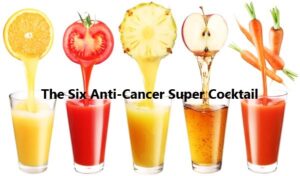
I will provide you EXCLUSIVE CONTENT on Anti-Aging, Longevity, Rejuvenation, Age Reversal, Anti-Oxidation, Natural Remedies & Healing.
🥰 SUBSCRIBE NOW => Anti-Aging, Longevity, Rejuvenation
~~~
Mastering Diet Management: The Key to Lasting Health and Vitality
In a world filled with fad diets, conflicting nutrition advice, and endless food choices, managing your diet can feel overwhelming. But at its core, diet management is not about strict limitations — it’s about balance, awareness, and making sustainable food choices that nourish your body and support your goals.
Whether you’re aiming to lose weight, gain energy, manage a health condition, or simply feel better, effective diet management is the foundation for long-term well-being.
🍽️ What Is Diet Management?
Diet management refers to the intentional planning and regulation of food intake to maintain or improve health. This includes:
Ensuring proper nutrient intake
Managing portion sizes
Choosing the right types of foods
Adapting to specific health needs or goals
It’s not about deprivation — it’s about empowerment through smart, mindful eating.
🧠 Why Diet Management Matters
A well-managed diet can:
Support weight control
Lower the risk of chronic diseases (like diabetes, heart disease, and hypertension)
Improve digestive health
Enhance mental clarity and mood
Boost energy and immunity
✅ Core Principles of Effective Diet Management
- Know Your Needs
Everyone’s nutritional needs are different. Factors like age, gender, activity level, and health status play a role.
Tip: Use tools like calorie calculators or consult a registered dietitian to identify your daily nutritional requirements.
- Balance Your Plate
Aim to include a mix of:
Fruits and vegetables (half your plate)
Whole grains
Lean proteins (chicken, fish, beans, tofu)
Healthy fats (avocados, nuts, olive oil)
Trick: Use the “Plate Method” to visually balance meals and avoid over-reliance on any single food group.
- Watch Portion Sizes
Even healthy foods can contribute to weight gain if eaten in excess.
Tip: Learn to read labels, use measuring cups, or visualize serving sizes using your hand (e.g., a palm-sized portion of protein).
- Stay Hydrated
Water plays a crucial role in digestion, metabolism, and overall health.
Tip: Aim for 6–8 cups of water a day, and limit sugary drinks. Sometimes thirst is mistaken for hunger.
- Limit Processed and Sugary Foods
Highly processed foods are often high in sodium, sugar, and unhealthy fats.
Tip: Shop the perimeter of the grocery store — this is where fresh, whole foods are usually found.
- Be Mindful and Consistent
Mindful eating can help prevent overeating and build a healthier relationship with food.
Tip: Eat slowly, listen to your body’s hunger cues, and avoid distractions like screens during meals.
📋 Special Considerations
Medical Conditions: Tailor your diet to manage conditions like diabetes, high cholesterol, or food allergies.
Cultural/Religious Needs: Respect personal values while ensuring balanced nutrition.
Lifestyle Goals: Whether you’re an athlete, a busy parent, or working on weight loss, your diet should support your specific lifestyle.
🔄 Make It a Lifestyle, Not a Diet
Sustainability is the most important aspect of diet management. Extreme restrictions usually backfire. Instead:
Make small, gradual changes.
Prepare meals at home.
Plan ahead for busy days or eating out.
Allow occasional indulgences — guilt-free.
🧾 Conclusion: Take Charge of Your Plate, Take Charge of Your Life
Diet management isn’t about perfection — it’s about progress. With knowledge, planning, and consistency, you can create a way of eating that supports your health, fuels your body, and fits your life.
Start today with one small change — and build from there. Your future self will thank you.



